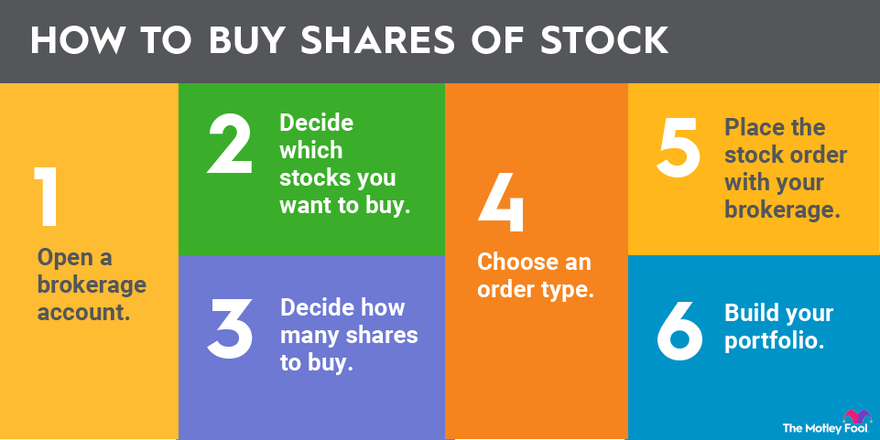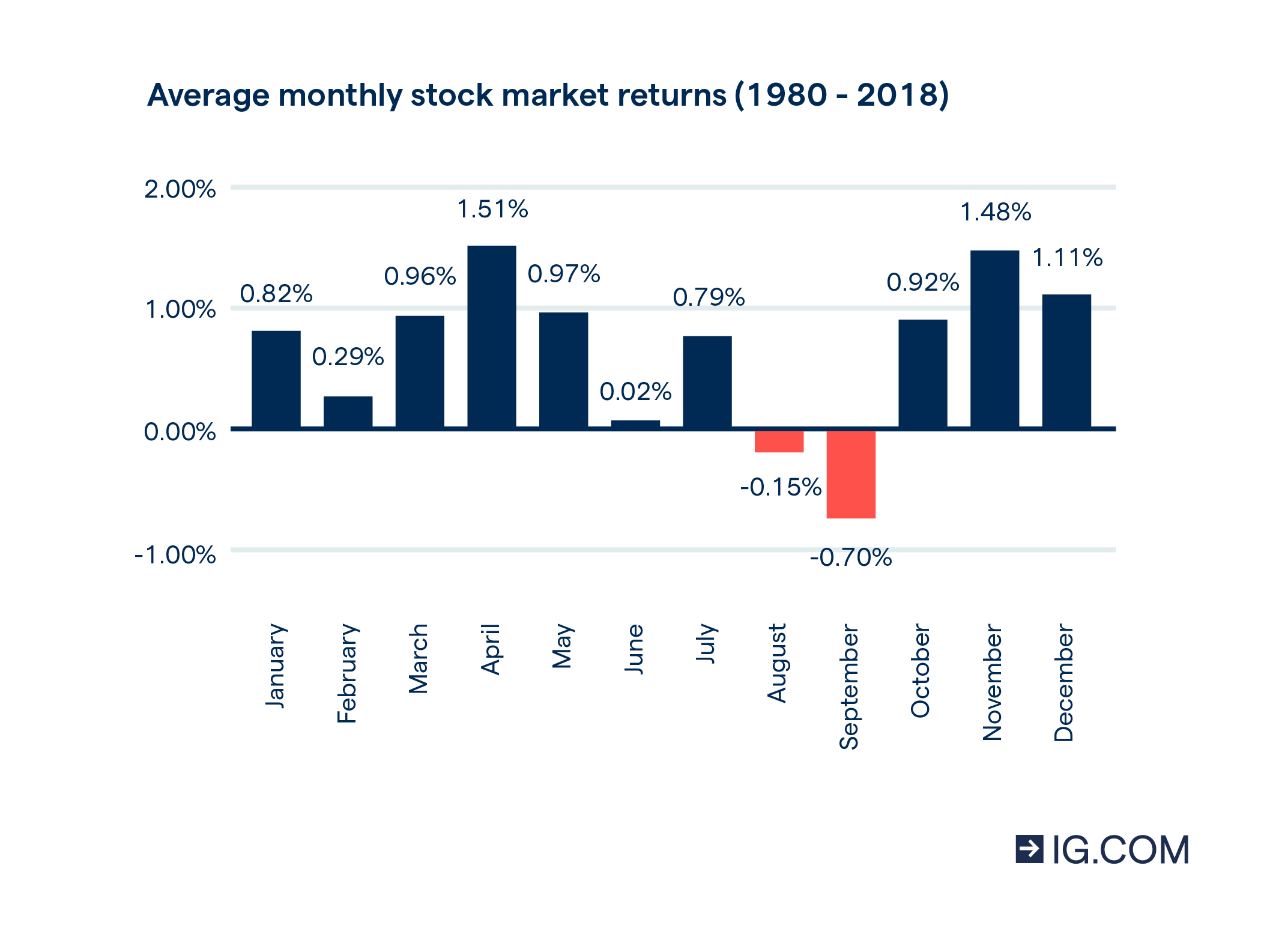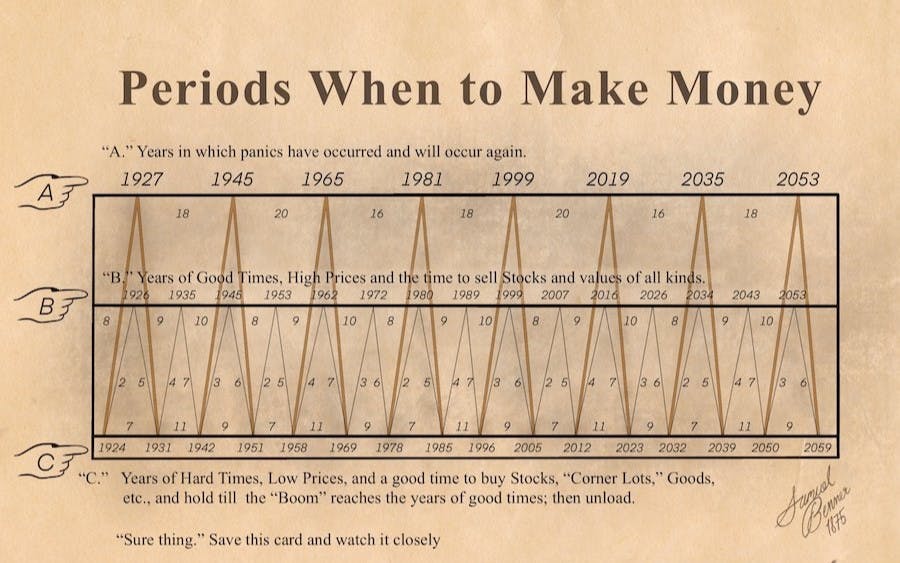Antwort Is it wise to buy stock? Weitere Antworten – Is investing in stocks a good idea
The potential benefits of investing in stocks include: Potential capital gains from owning a stock that grows in value over time. Potential income from dividends paid by the company. Lower tax rates on long-term capital gains.Based on the stock market's historic performance, there's never necessarily a bad time to buy — as long as you keep a long-term outlook. The market can be volatile in the short term (even in strong economic times), but it has a perfect track record of seeing positive returns over many years.IT stocks can help diversify your portfolio, reducing overall risk. They are not directly tied to the performance of other sectors like manufacturing or banking. By investing in IT stocks, you gain exposure to the latest technological advancements that are shaping the future.
Should I buy 1 stock at a time : While purchasing a single share isn't advisable, if an investor would like to purchase one share, they should try to place a limit order for a greater chance of capital gains that offset the brokerage fees.
Is investing $100 in stocks worth it
Investing your $100 can be pivotal in generating passive income, preparing for financial uncertainties, and achieving long-term goals. The magic of compound interest implies that even modest sums can snowball over time.
Is it smart to put money in stocks : Investing provides the potential for (significantly) higher returns than saving. As your investments grow, they allow you to take advantage of compounding to accelerate gains. Investing offers many different access points and strategies, from individual stocks and bonds to mutual or exchange-traded funds.
The US stock market enjoyed a strong first quarter in 2024, advancing 10%. But inflation was stickier than some expected. In fact, the March CPI number that came out this morning was hotter than expected, too. And that's leading many to question when the Federal Reserve will begin cutting interest rates.
Positive returns — but smaller than in 2023
I think that the overall stock market will deliver positive returns in 2024. However, I expect those returns to be somewhat smaller than they were last year.
When to buy stocks for beginners
Historically, April, October, and November have been the best months to buy stocks, while September has shown the worst performance. Knowing when to hold or sell stocks depends on personal strategies, research, and confidence in the stock's potential for growth.What is the 3 5 7 rule in trading A risk management principle known as the “3-5-7” rule in trading advises diversifying one's financial holdings to reduce risk. The 3% rule states that you should never risk more than 3% of your whole trading capital on a single deal.A round lot is a standard number of units of an investment product. A round lot of stocks is 100 shares or any number divisible by 100. A lot is amount of securities bought in a single transaction on an exchange. A round lot is typically 100 shares but investors don't have to buy in round lots.
Investing as little as $200 a month can, if you do it consistently and invest wisely, turn into more than $150,000 in as soon as 20 years. If you keep contributing the same amount for another 20 years while generating the same average annual return on your investments, you could have more than $1.2 million.
How much will I have in 30 years if I invest $100 a month : Investing $100 per month, with an average return rate of 10%, will yield $200,000 after 30 years. Due to compound interest, your investment will yield $535,000 after 40 years. These numbers can grow exponentially with an extra $100. If you make a monthly investment of $200, your 30-year yield will be close to $400,000.
How much should a 30 year old have saved : If you're looking for a ballpark figure, Taylor Kovar, certified financial planner and CEO of Kovar Wealth Management says, “By age 30, a good rule of thumb is to aim to have saved the equivalent of your annual salary. Let's say you're earning $50,000 a year. By 30, it would be beneficial to have $50,000 saved.
Is it better to save or invest
Investing provides the potential for (significantly) higher returns than saving. As your investments grow, they allow you to take advantage of compounding to accelerate gains. Investing offers many different access points and strategies, from individual stocks and bonds to mutual or exchange-traded funds.
5-year, 10-year, 20-year and 30-year S&P 500 returns
| Period (start-of-year to end-of-2023) | Average annual S&P 500 return |
|---|---|
| 10 years (2014-2023) | 11.02% |
| 15 years (2009-2023) | 12.63% |
| 20 years (2004-2023) | 9.00% |
| 25 years (1999-2023) | 7.18% |
It can be nerve-wracking to watch your portfolio consistently drop during bear market periods. After all, nobody likes losing money; that goes against the whole purpose of investing. However, pulling your money out of the stock market during down periods can often do more harm than good in the long term.
Will 2024 be a bull or bear market : Economic growth actually accelerated above its 10-year average in 2023. That resilience, coupled with a fascination about artificial intelligence (AI), changed investors' collective mood. The S&P 500 soared throughout the year and finally reached a new high in January 2024, making the new bull market official.








:max_bytes(150000):strip_icc()/Term-Definitions_bluechipstock-96584d05081e4d77bad7cf4cd49c619a.jpg)